Posts by worldrelief
World Relief Awarded Grant to Expand Reconciliation, Stabilization and Resilience Trust Fund Project in South Sudan
December 3, 2021
CONTACT:
Audrey Garden
audrey.garden@pinkston.co
571-405-1606
BALTIMORE – Today, the Reconciliation, Stabilization and Resilience Trust Fund Project (RSRTF) Phase II program in Koch County, Unity State, was approved by the United Nations Development Programme Steering Committee for 24 months, spanning December 1, 2021, to November 30, 2023. The total value of the program is $8.7 million, of which World Relief, as the lead agency, is budgeted $3.84 million.
“We are so happy and very thankful to God for this opportunity to continue our peacebuilding work in South Sudan through Phase II. This project provides us with great opportunities for expansion to other counties and will allow us to diversify our programming,” said Abiyot Mulugeta, World Relief South Sudan Country Director.
In Phase II of the program, World Relief will geographically expand to four new counties surrounding Koch County: Guit County, Rubkona County, Mayom County and Mayendit County.
“The RSRTF Program has been the first pilot Area Based Program launched with a goal of restoring peaceful coexistence in Koch County in Unity State,” said Charles Franzén, World Relief Humanitarian and Disaster Response unit director. “Programs introduced in Phase I, such as Village Saving and Loan Associations (VSLAs) and the Self-Help Groups (SHGs), successfully provided alternative sources of livelihoods especially for vulnerable women and youth prone to violence, and have continued to build community resilience against conflicts.”
During Phase I, 72% of surveyed participants reported a decrease in violence and a 24% increase in acceptable food security levels. Also, 365 leaders trained in conflict resolution, and 2,559 individuals received information on human rights, legal frameworks and rights and responsibilities. Forty-two chief court members were trained on South Sudanese law.
“Before the RSRTF program, women and children suffered a lot from violence which was inflicted on them by the armed rebellion. Killings, raping and kidnapping used to be the order of the day. However, since the intervention of the consortium, the aspects of violence have been reduced,” shared one adolescent benefiting from Phase I of programming in Koch County.
The Phase II program will expand upon Phase I and have as its main elements the following expected outcomes:
- RSRTF Outcome 1: Individuals, particularly children and women, are facing less violence at the community and local level.
- RSRTF Outcome 2: Communities have effective mechanisms in place that meaningfully include women and youth to resolve conflicts peacefully.
- RSRTF Outcome 3: Justice sector actors are more effectively delivering justice, even in areas with previously limited or no judicial infrastructure.
- RSRTF Outcome 4: Communities, including women, youth and disadvantaged groups, are empowered and increasingly able to participate in local and broader political, peace and security processes.
- RSRTF Outcome 5: Community resilience is strengthened through increased economic opportunities and sustainable livelihoods.
- RSRTF Outcome 6: Reconciled communities have increased access to equitable and reliable basic services and reduced humanitarian aid dependency.
Various drivers of conflicts, such as cattle raids, have continued to perpetuate violence in Koch County, and cultural practices of blood feuds have risen as members of clans and communities who have lost relatives engage in revenge killings. Many of these cattle raidings and revenge dynamics transcend county lines. Phase II will allow World Relief to expand its reach to the regions surrounding Koch County for a more comprehensive peacebuilding approach to this widespread problem.
“Koch County and its surrounding counties have been volatile areas for many years. The fact that we are able to implement peace programs in South Sudan that are still ongoing is incredible,” said Myal Greene, World Relief President and CEO. “Phase II marks a milestone of peacebuilding in South Sudan, and we’re grateful for the opportunity to continue building peace alongside our partners for the next two years.”
Other partners in the consortium led by World Relief include CARE, MercyCorps, the United Nations Mission in South Sudan.
For more information on World Relief’s work in South Sudan, visit https://worldrelief.org/tag/south-sudan/.
To download a PDF version of this press release, click here.
About World Relief
World Relief is a global Christian humanitarian organization that brings sustainable solutions to the world’s greatest problems – disasters, extreme poverty, violence, oppression, and mass displacement. For over 75 years, we’ve partnered with churches and community leaders in the U.S. and abroad to bring hope, healing and transformation to the most vulnerable.
Learn more at worldrelief.org.
World Relief Partners With Faith Communities To Address Gender as a Driver and a Barrier in the HIV Epidemic
December 1, 2021
CONTACT:
Audrey Garden
audrey.garden@pinkston.co
571-405-1606
BALTIMORE – World Relief today marked World AIDS Day by re-committing to address the HIV epidemic, one of the world’s most serious public health challenges. This World AIDS Day, UNAIDS is highlighting “the urgent need to end the inequalities that drive AIDS and other pandemics around the world.” Should these inequalities not be adequately addressed, ending AIDS by 2030 will be an unlikely possibility. In the midst of a prolonged COVID-19 pandemic and a worsening social and economic crisis, World Relief remains committed to assisting the 37.7 million people – 1.7 million of whom are children – worldwide who are living with HIV or AIDS.
“World Relief has worked in HIV/AIDS prevention and care for more than 25 years. Eradicating this global health crisis will take a dedicated and sustained effort from governments, communities and people of faith around the world,” said Myal Greene, president and CEO of World Relief. “While progress has been made in many key areas, upholding the rights and protecting the health of all peoples must remain a top priority in the Church’s HIV response.”
Gender-based violence is both a cause and a consequence of HIV. November 25 marked the beginning of 16 Days of Activism Against Gender-Based Violence. For 30 years, the international community has come together to amplify voices and speak out against gender-based violence, which affects millions of people worldwide. While the 16 Days of Activism Against Gender-Based Violence runs from November 15 to December 10, World Aids Day falls in the middle, on December 1.
World Relief especially focuses on Malawi, where, as of 2020, 1.1 million people are still living with HIV, with 33,000 new HIV infections each year. Of the 1.1 million living with HIV, 20% reported experiencing physical violence, and 41% reported sexual violence within a year. In Malawi, World Relief’s work is possible through SCOPE HIV, a cooperative agreement with USAID, implementing the President’s Emergency Plan for AIDS Relief (PEPFAR) strategy alongside the Ministry of Health and National AIDS Council.
World Relief is addressing the issue by engaging local faith and community leaders to highlight harmful gender norms that act as a barrier to men and youth and a risk factor for adolescents. World Relief’s SCOPE HIV program in Malawi continues to reach the last mile with HIV care and treatment, and prevent new HIV infections by reducing sexual and gender-based violence. HIV infections in Malawi are declining, but positive gender norms and gender-based violence prevention are critical to sustaining this momentum and reaching every person who needs it with HIV care and treatment. In just seven months of implementing SCOPE activities, World Relief Malawi has helped 582 survivors gain access to services. These community volunteers and faith congregations have also intervened to stop child marriages and keep young girls in school.
“Addressing harmful gender norms is crucial to continue the decrease in new infections every year,” said Emily Chambers Sharpe, World Relief’s Senior Technical Advisor for HIV and Health Strategy. “Positive gender norms and gender-based violence prevention help us reach the last mile with HIV care and treatment.” Globally, the last mile is described in the 95-95-95 goals–that 95 percent of those living with HIV know their status, 95 percent of people who know their status are on HIV treatment, and 95 of those on treatment reach an undetectable viral load level.
By 2022, World Relief will support 39,000 children to graduate from the IMPower program, preventing an estimated 2,800 cases of sexual violence against boys and girls in Malawi. Additionally, World Relief Malawi is engaging faith leaders to reduce HIV stigma and promote positive messages about available testing, care and treatment for HIV. Through disseminating these messages with their congregations, faith leaders will reach the vulnerable with HIV treatment literacy.
“Faith leaders in Malawi and in vulnerable countries around the world play a key role in helping communities break the silence around HIV and dispel common misinformation. It is crucial that organizations and nations not give up in the fight against HIV/AIDS,” said Chambers Sharpe. “As the global community faces the COVID pandemic, we must also continue to invest in HIV treatment support at the grassroots, raising awareness, reducing barriers, and promoting justice for affected and at-risk women, men and children.”
For more information about World Relief’s HIV/AIDS prevention work, other projects and how you can help, visit https://worldrelief.org/.
To download a PDF version of this press release, click here.
About World Relief
World Relief is a global Christian humanitarian organization that brings sustainable solutions to the world’s greatest problems – disasters, extreme poverty, violence, oppression, and mass displacement. For over 75 years, we’ve partnered with churches and community leaders in the U.S. and abroad to bring hope, healing and transformation to the most vulnerable.
Learn more at worldrelief.org.
Share the Gift Pt. 2: Paying it Forward to Empower Women in Turkana
Tomorrow is Giving Tuesday. We invite you to share-the-gift by paying it forward alongside women in Turkana County. Earlier this month you heard about a powerful share-the-gift project in Karebur Village, Turkana.
500 miles north, in Kachoba Village, another share-the-gift project is also taking root. This time, it’s combating malnutrition while empowering women to take on new and important roles within their families and community.
Sharing the Gift in Kachoba
Turkana has predominantly been a patriarchal society. Men are the leaders and the heads of the household and are responsible for making decisions concerning family wealth including slaughtering livestock for food and/or choosing which livestock gets sold or traded.
In this pastoralist community, it is common for the men to leave the home weeks at a time, taking the livestock out to graze where they can find food. In better times, households would have food in the reserve. They would slaughter an animal, cut the meat into thin strips like spaghetti then hang it out in the sun to dry completely. Then, they’d salt the meat and keep it above the fireplace which is always smoking, thus preventing the meat from rotting.
If one household was running low on food, a neighbor might put some of their meat in a pot to make some broth and offer it to others. Again, hands meeting in the pot!
Today, however, climate change and drought is threatening their very way of life. As the livestock is dying off, there is less meat for people to eat, and the remaining livestock struggle to produce milk. Malnutrition is rampant and is affecting children under five at increasingly high rates.
As the primary caregivers of the home and children, women have valuable insights into their family’s needs. And yet, they are not consulted on decisions that affect livelihoods, livestock or daily food intake. In order to combat malnutrition in Kachoba, women need to weigh in.
Care Groups and Creative Problem Solving
Many of the women in Kochoba are involved in World Relief’s Care Group program, where together they began brainstorming new food options to improve household nutrition.
Initially, the mothers proposed milking goats, but concluded they would have a hard time finding adequate feed for their goats. The cyclic drought caused by climate change has made foliage — a goat’s source of food — hard to come by. Underfed goats cannot produce an adequate amount of milk to feed their families.
As the women talked further, they proposed the idea of chickens. Chickens are smaller animals so they are easier to feed. And while men typically control decisions related to livestock, they see chickens as too small for them to worry about.
In 2021, World Relief gifted 50 participating women with four chickens and one cockerel. The women agreed that once their chickens reproduce, they will give away a similar number — three chickens and one cockerel — to another lady in her community.
Because men don’t care for chickens, women are able to have an asset in their hands that they can control, and which can significantly improve nutrition at the household level.
They’re also able to make decisions about whether or not they want to sell one of the cocks or chicks to purchase something they need such as medication for a sick child. Although the project is less than a year old, we are seeing improvements in the way families relate to one another. It has helped women a great deal.
Moving Together Toward Lasting Change
The share-the-gift project is just one part of an expansive community development project in Turkana. The local church networks in the area continue to supervise these projects, ensuring that the seed of love first planted by World Relief will saturate the entire community so that every household has the chance to receive and improve their livestock.
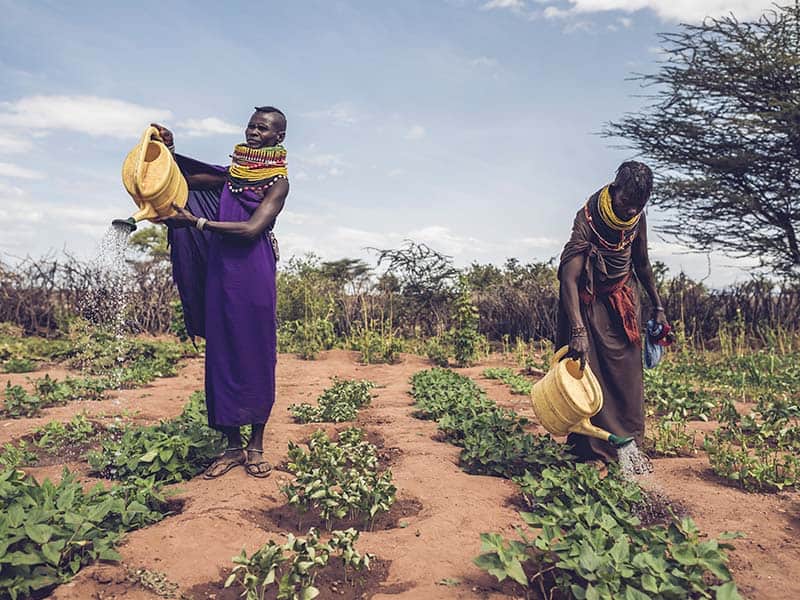
That’s where the whole joy today is. We are not just creating solutions for people to have food to be stronger. We are creating solutions that are wholesome, uprooting the community from poverty, to a place of holistic transformation, where they are able to take charge of their destiny.God loves his people and is infinitely interested in their welfare. That statement is true whether someone is a project coordinator or implementer (like our staff) or a project beneficiary. We are moving together, growing and learning together as we seek to create lasting change in our communities and around the world.
Share your gift this Giving Tuesday by paying it forward on behalf of a friend or family member. When you give today, you’ll receive a digital card to send to your loved one, letting them know about the lasting change their gift is creating.
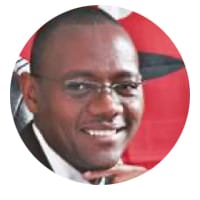
Elias Kamau serves as Country Director at World Relief Kenya. He has over 20 years of experience in humanitarian and development work in various countries including South Sudan, Somalia, Haiti, Kenya and Sudan. He started his career as a schoolteacher rising to the position of Director of External Studies and Continuing Education and successfully trained teachers in and out of Kenya. Exposure to the plight of refugees while serving as an education and training consultant in the sprawling Dadaab Refugee camps in Northern Kenya marked a turning point in his life. He resigned his position with the government feeling called to those vulnerable people. He went on to serve them in some of the poorest parts of the Horn of Africa where he held various positions with reputable International organizations including CARE, Norwegian Church Aid, International AID Services and World Concern among others before joining World Relief. Elias lives in Nairobi with his family including his wife Phelista and two children; a girl and a boy. He enjoys making friends and sharing the love of Jesus.

Oliver Otsimi serves as the Turkana Program Manager at World Relief. He holds a Bachelor’s degree in Environmental Studies (Community Development) and post graduate trainings in Horticultural Crop Production and Post-Harvest Technology, Agribusiness and Marketing. Oliver is studying for a Masters degree in Project Planning and Management at Maseno University. Oliver’s ambition is to positively transform poor households achieve food security and prosperity to enable them live a life of dignity as intended by God. He is married to Pamela and they have two children.
Moving Together to End Gender-Based Violence
16 Days of Activism
As many in the U.S. paused to celebrate Thanksgiving, November 25th also marked the beginning of 16 Days of Activism Against Gender-Based Violence. For 30 years, the international community has come together to amplify voices and speak out against gender-based violence, which affects millions of people worldwide.
While gender-based violence affects men, women, boys and girls worldwide, women and girls like Angela are affected disproportionately.
Angela’s Story
Angela is a 12-year-old girl living in Malawi, a country where sexual and gender-based violence impacts an estimated 15-25% of girls and boys under 15 years old.
One day, as Angela was leaving school, an older man whom she didn’t know approached her saying that he had something to tell her. When she stopped, he made it clear that he wanted her to be his girlfriend.
Thankfully, Angela had been attending empowerment and self-defense classes, called IMPower, through World Relief’s SCOPE HIV project.
IMPower is a curriculum customized for the unique challenges that boys and girls face. Girls learn about boundary setting and diffusion tactics, verbal assertiveness, negotiation and physical self-defense skills, while the boy’s curriculum focuses on treating women and girls respectfully, and the prevention of sexual gender-based violence amidst social pressures related to masculine norms.
Using the skills she learned in IMPower, Angela loudly asserted that she was not interested in a relationship. To her surprise, the tactic worked, getting the attention of those around her and giving her the courage to walk away.
The next day, she saw the man again. This time, he didn’t even acknowledge her, despite her being alone.
“I can now sense danger, respond quickly to danger, by lying, shaming, negotiating even warning for consequences in order for me to get away,” Angela said. “And if the situation seems very dangerous, there is always readily available support from people and friends around.
Gender-based Violence and HIV Transmission
While the 16 Days of Activism Against Gender-Based Violence runs from Nov. 15-Dec. 10, World Aids Day falls right in the middle on December 1.
Gender-based violence is both a cause and a consequence of HIV. Of people living with HIV in Malawi, 20% reported experiencing physical violence, and 41% reported sexual violence over 12 months, including intimate partner violence.
HIV infections in Malawi are declining, but positive gender norms and gender-based violence prevention are critical to sustaining this momentum and reaching every person who needs it with HIV care and treatment.
In partnership with USAID and PEPFAR, World Relief’s SCOPE HIV project is focused on addressing both issues together by implementing prevention approaches, community mobilization, advocacy, holistic support for survivors and training programs like IMPower.
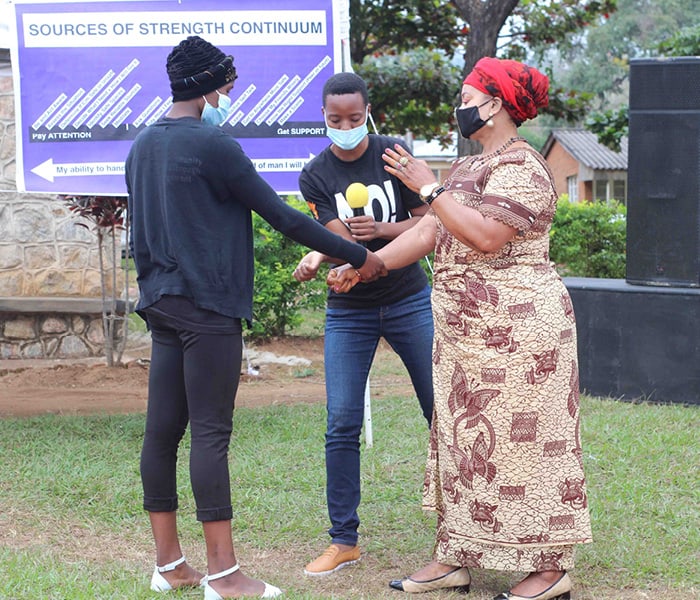
In just seven months of implementing SCOPE activities, World Relief Malawi has helped 582 survivors gain access to services. These community volunteers and faith congregations have also intervened to stop child marriages and keep young girls in school.
You Can Help
Combating gender-based violence, and creating change that lasts isn’t easy, but it’s possible when we move together. That’s why we invite you to move with us by participating in these 16 Days of Activism. You can:
1. Make a personal commitment to “Stop Violence Now.”
All of us can repent of times when we’ve used power over others to cause harm — whether large or small. Ask the Holy Spirit to show you how to give power to or have power with people in our homes, churches and communities.
2. Reach out to survivors of sexual and gender-based violence.
If you know someone who has survived sexual and gender-based violence, reach out and offer a helping hand. Let the spirit of whatsoever you do to the least of my brother, that you do unto me flourish (Matthew 25:40).
3. Pray for victims of sexual and gender-based violence.
Prayer is one of our most powerful tools. Pray for healing for those affected by sexual and gender violence, pray for those like Angela who are vulnerable, and pray for men and women to speak out.
Learn more about SCOPE HIV and how we’re working to help address gender in Malawi’s HIV epidemic. For more details about how you can engage in the 16 Days Campaign visit https://16dayscampaign.org.
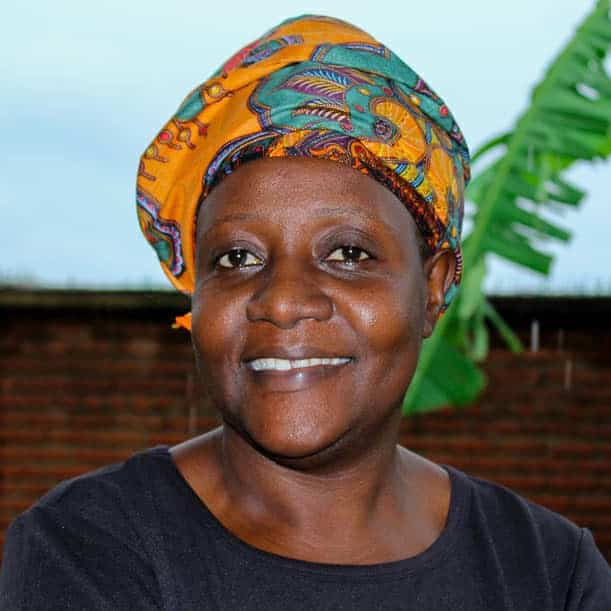
Veronica Kaitano serves as the Gender Equality Social Inclusion Technical Advisor with the World Relief’s Programs Resources Team. Through her work, Veronica supports World Relief’s country offices in ensuring the integration of a gender and social inclusion approach within programming and acts as the global technical lead for supporting implementation and continued growth of World Relief’s couple strengthening model Families for Life, with a specific emphasis on disability inclusion.
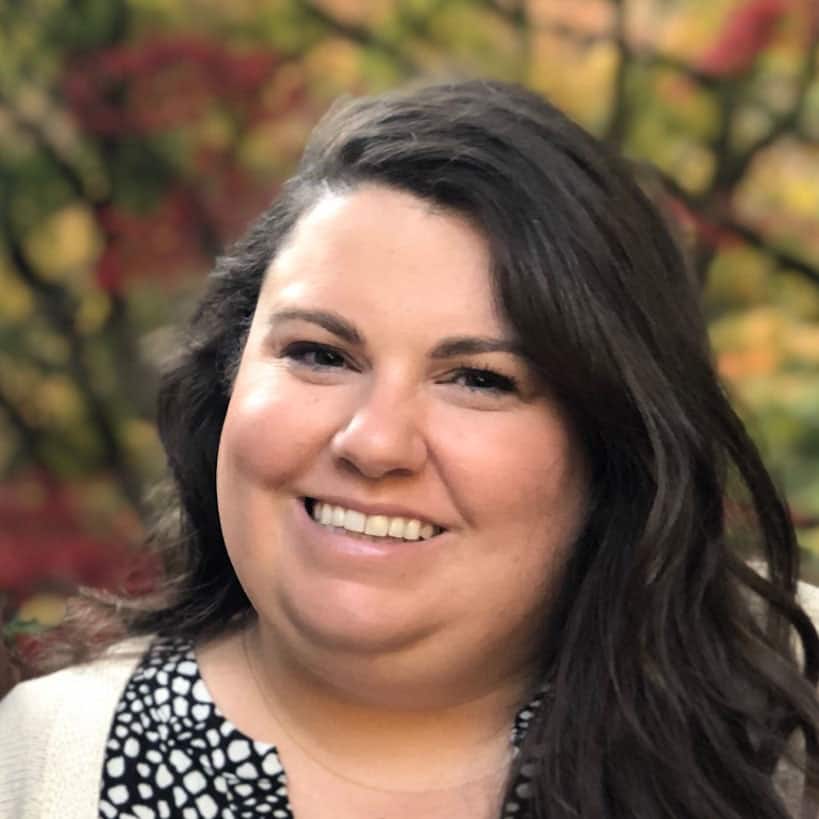
Laura DePauw serves as the Knowledge Management Advisor for World Relief’s Strengthening Community Health Outcomes Through Positive Engagement (SCOPE) project providing knowledge management, communications, and information management across the project’s four countries.
10 Reasons to Give Thanks in 2021
2021 has been a challenging year. Like you, we’ve felt the pain of loss, the ache of division in our churches and communities and the harsh realities of ongoing injustice around the world. This Thanksgiving, we may even feel tempted to ask, What’s there to give thanks for?
And yet at World Relief, we’ve found there’s much to be grateful for in 2021. In the midst of the crises and the chaos, God has opened doors, made paths straight and raised up partners who move with us to serve those experiencing vulnerability. We asked 10 of our staff from around the world to share just some of what they’re grateful for this year. We hope their testimonies of God’s faithfulness shining through in 2021 will inspire you to “give thanks in all circumstances” (1 Thess. 5:18), as they have us.
What are you grateful for in 2021?
Karen Crisler, Community Engagement Manager, Appleton, WI: I’m grateful to be in a field of work that is laboring towards restoration; that despite the fractures in all spheres of life, redemption is at work. I’m also grateful that I’m slowly learning that this work doesn’t rest on my shoulders, but rather my daily need is what tethers me to Jesus. I’m so thankful that I got to join the World Relief staff this year!
Clemence Nkulikiyinka, Integral Mission Technical Advisor, Rwanda: I am thankful that God’s grace has sustained us in 2021. World Relief has been able to keep human resources, despite the challenges brought by the pandemic. I am grateful for the ability to virtually connect with colleagues and opportunities to visit and support in-person as the world reopens. I am grateful that we have access to vaccines, and that they are reducing the mortality rate.
Matilda Matitha, Country Director, Malawi: I am thankful to God because he continues to protect WR Malawi staff and their families from Covid 19 as we serve vulnerable communities. I am also grateful to God for the opportunity to be part of the great mission in WR Malawi where we are reaching close to 1.9 million people.
Abby Ray, Communications & Advocacy Coordinator, High Point, NC: I’m extremely thankful that God provided a job for me at World Relief. Working for an organization that aligns with my personal mission and values, and working with people who care about me as not only an employee but a neighbor and sister of Christ, is so encouraging. I’m incredibly thankful for all of the people in our office who take such good care of our clients and church partners.
Katie Love, Preferred Communities Program Manager, Baltimore, MD: We are grateful that God has provided through government grants and private donations to meet the needs of thousands of Afghans arriving in America. With these funds, we will be able to support housing and mental health needs, provide one-one-one case management and help pre-literate Afghan women build community and gain access to resources through literacy training.
Andualem Mekonnen, Program Quality Specialist, South Sudan: I am very grateful to God Almighty for keeping me and my family protected from the horrendous COVID-19 pandemic. I am also grateful for the opportunity God has opened for me to serve the marginalized and neglected communities in South Sudan through World Relief.
Bailey Clark, Communications Coordinator, Memphis, TN: We are so grateful for our host families and their incredible hospitality toward refugee families. Hearing their sweet, encouraging stories has been a huge blessing.
Ileana Gómez, CYRUS Support, Nicaragua: I’m thankful for the opportunity to get to know our staff in South Sudan and Kenya while living with and learning from them. Their work is amazing! I saw the commitment of each of them to our vision at World Relief — that was a blessing and is still a blessing. I’m grateful that I could have this wonderful experience, and I thank God that he returned me home safe and sound in 2021.
Megan Ashley, VP of Marketing, Chicago, IL: I’m thankful for the commitment to excellence each member of the World Relief team brings to their work. It seems to be in each person’s DNA to bring our best to those we’re working with and for — even when it can mean extra hours, tough conversations or adapting overnight to an unfolding need somewhere in the world. Whether it’s our best writing, design, client care, policy, program, etc., we’ve been blessed with people who care.
Jeff Walser, Senior Director of Development, Tampa, FL: I am so thankful for the presence of God through his people in my life. It’s been a chaotic year of ups and downs, hopes gained and hopes lost. As I’ve struggled to keep buoyant, God’s people — with steady loving hands, patient words of encouragement and faith-filled prayers — have redirected my gaze to the One who calms the winds and waves and leads us forward into the work he has given us to do.
Share the Gift Pt. 1: How One Community in Turkana Is Paying it Forward
Hands Meeting in the Pot
Turkana County, Kenya, is not an easy place to live. Some have even referred to it as the oven of the world. High temperatures hover at an average of 95 degrees Fahrenheit. The air is dry, and rainfall is scarce.
Many residents have lost all their livestock due to persistent drought, and malnutrition is rampant — especially among children whose mothers struggle to produce enough milk to feed them due to their own dietary deficiencies. And yet, a culture of generosity and creativity is giving way to hope and innovation in partnership with World Relief.
Because of the sheer hardness of life in Turkana, community members have developed strong relationships and social capital with one another, depending on each other greatly. You may often hear stories of Turkanans moving to the United States or Australia to work. The money they make is sent home, often supporting several households.
Turkanans even have a saying, which goes, “It is best for your hands to meet in the pot, licking fingers with nothing, than it is for you to have a big meal in front of you to eat all alone.”
This idea of giving to your relatives and neighbors is an ingrained way of life in Turkana. And it is this way of life that has led to a new program called Share the Gift in the Karebur and Kachoba communities.
Introducing the Galla Goat
World Relief began working in Turkana in 2011 in response to a drought-induced food crisis. At the time, one-third of the population suffered from malnutrition. We collaborated with local churches and community members to seek solutions to these issues, and together, we developed robust programming around the issues of food and water security — including introducing a new breed of goats to the region, the Galla goat. Galla goats are a specialized, drought-resistant breed of goats. News outlets like NPR have called them “super goats” because of their ability to withstand high heat.
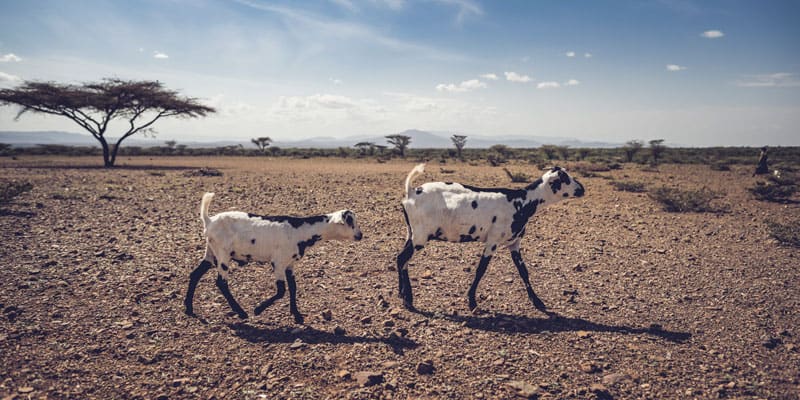
Initially, many Turkanans were skeptical about the new breed. Their goats were red, and the Galla goats were white. These pastoralist men were proud of their livestock and treasured their red goats. Likewise, they feared the white goats would be easier to spot leaving them prone to conflict or theft.
But as they came to see that the Galla goats were superior — they produced more milk, matured faster and fetched higher prices at the markets — they became more willing to give the goats a try.
Sharing the Gift in Karebur
While the Galla goats are, themselves, a gift and a miracle, in 2019 World Relief worked with local churches in the Karebur Village to take things a step further. Together, they designed the first share-the-gift project.
Under the guidelines of this initiative, 20 women were each gifted a Galla goat and each committed to gifting the first female offspring from their goat to another, equally needy person in the community. From there, the chain reaction would begin, until everyone had access to a Galla goat.
Akiru was one of the first 20 women to receive a goat.
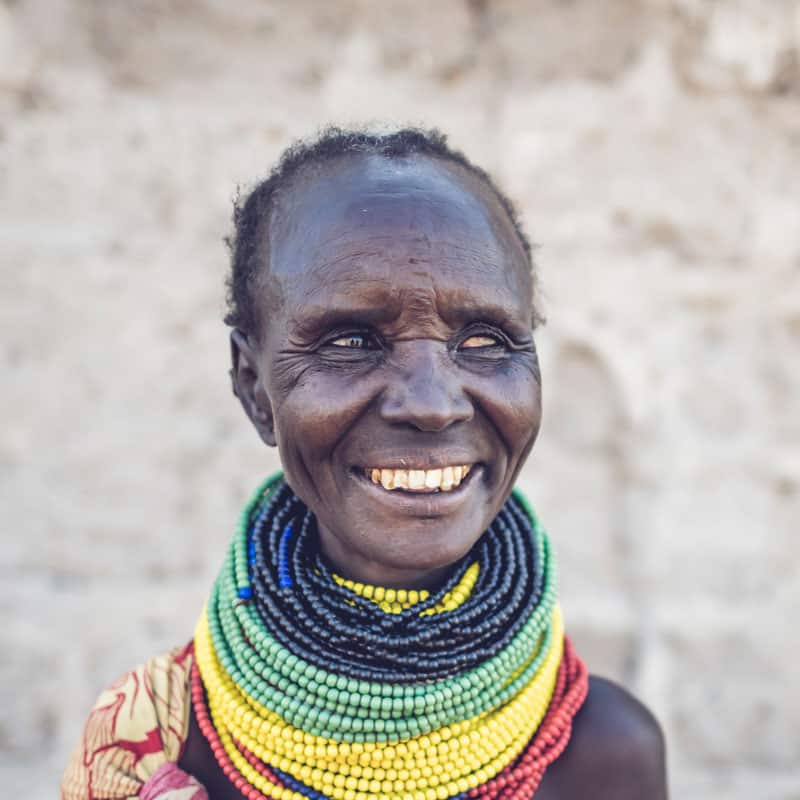
“I love Karebur Community because of the unity and love [we] have for each other… Life has always been a struggle in our community. The drought has always been with us and our goat breeds had been deteriorating as their body sizes had been diminishing and so was their production. The gift of an improved goat was indeed a blessing to us.
I remember during the first lactation the goat produced a lot of milk which was enough for my (own) family’s use and there was surplus milk, which we could share with my neighbor. The gifted goat was such a blessing.”
In early 2021, after the initial 20 goats had produced offspring, the goats’ owners stayed true to their commitment and gifted their first female offspring to others in the community. Women like Anna received the tangible provision of sustenance as well as a renewed sense of connectedness with her friend and neighbor.
“The goat from [my]neighbor has improved our relations for the better. My neighbor now is like a very close relative as a result of the bond of caring resulting from this valuable gift of love,” she said.
The share-the-gift project is just one part of an expansive community development project in Turkana that is made possible when we move together. The local church networks in the area continue to supervise these projects, ensuring that the seed of love first planted by World Relief will saturate the entire community so that every household has the chance to receive and improve their livestock.
You, too, can share the gift this season. Your gift of $60 can make a huge difference in the lives of the most vulnerable around the world, including supplying a goat to a family in Turkana!
Will you give the gift of hope and lasting change this season?

Elias Kamau serves as Country Director at World Relief Kenya. He has over 20 years of experience in humanitarian and development work in various countries including South Sudan, Somalia, Haiti, Kenya and Sudan. He started his career as a schoolteacher rising to the position of Director of External Studies and Continuing Education and successfully trained teachers in and out of Kenya. Exposure to the plight of refugees while serving as an education and training consultant in the sprawling Dadaab Refugee camps in Northern Kenya marked a turning point in his life. He resigned his position with the government feeling called to those vulnerable people. He went on to serve them in some of the poorest parts of the Horn of Africa where he held various positions with reputable International organizations including CARE, Norwegian Church Aid, International AID Services and World Concern among others before joining World Relief. Elias lives in Nairobi with his family including his wife Phelista and two children; a girl and a boy. He enjoys making friends and sharing the love of Jesus.

Oliver Otsimi serves as the Turkana Program Manager at World Relief. He holds a Bachelor’s degree in Environmental Studies (Community Development) and post graduate trainings in Horticultural Crop Production and Post-Harvest Technology, Agribusiness and Marketing. Oliver is studying for a Masters degree in Project Planning and Management at Maseno University. Oliver’s ambition is to positively transform poor households achieve food security and prosperity to enable them live a life of dignity as intended by God. He is married to Pamela and they have two children.
The Price of our Daughters
Earlier this week, news broke of Parwana Malik, a 9-year-old girl sold for $2,200 to a 55-year old man in an Afghan displacement camp. The heartbreaking story is one of many coming out of Afghanistan this week, as families struggle to survive since the Taliban took control of the nation.
Many of us were shocked and despaired by this news. Here, we answer a few questions about child marriage and what can be done to curtail the devastating practice.
Is what we’re seeing in the news in Afghanistan a common occurrence around the world? How prevalent is child marriage globally?
Unfortunately, child marriage around the world is far more common than any of us would like to believe. Worldwide, an estimated 650 million girls and women alive today were married in childhood. Each year, over 12 million girls are married before the age of 18 – that’s 23 young girls every minute.
Globally, we have made significant progress over the last decade in reducing the occurrence of child marriage, but the effects of COVID-19 have dramatically shifted that trajectory. A recent report by UNICEF revealed that 10 million additional girls are now at risk due to the pandemic – a result of school closures, economic stress, service disruptions, pregnancy and parental deaths.
Isolated and with limited freedom, these child brides are deprived of their fundamental rights to health, education and safety. They are neither physically nor emotionally ready to become wives and mothers and face increased risks of experiencing dangerous complications in pregnancy and childbirth, contracting HIV/AIDS and suffering domestic violence and abuse. With limited access to education and economic opportunities, they and their families are also more likely to live in poverty.
What are the factors that contribute to child marriage around the world?
There are many complex elements that contribute to underage marriage globally – including harmful gender norms, social and cultural practices, poverty and insecurity.
At the root of child marriage is gender inequality and injustice. All over the world today, girls are valued less because of their sex and denied their rights. They are controlled by patriarchal systems that often limit their freedom, education and decision-making.
These systems create social and cultural norms that further restrict girls and women from having control over their own lives and futures. And for too many girls, these norms dictate early marriage before the age of 18.
Nearly 40% of girls in the world’s poorest countries are married before the age of 18. Families in poverty see the marriage of their daughters as a way to both ease the burden of living costs and secure economic stability from the dowry or “bride price.”
Early marriage of girls becomes even more frequent during times of conflict or crisis, as families slip further into poverty. The marriage of a daughter can often be used to repay debts, settle conflict, or create alliances. Some parents, can even see early marriage as a way to protect their daughters from sexual violence during conflict where the rule of law has broken down.
How can we work with communities and families to prevent child marriage?
Thankfully, prevention methods can help significantly in reducing the occurrence child marriage.
One such method is building holistic child protection systems that create protective environments for early adolescents and teens. At World Relief, this looks like early adolescent and adolescent clubs which equip and empower not only children themselves to understand how to prevent early marriage but also those that are in the circle of care and influence, including parents and caregivers, faith leaders, teachers, mentors and other community members. By establishing this kind of protective environment, we can prevent abuse, neglect, exploitation and violence before it occurs.
Since economics and root issues of poverty are the primary drivers for early marriage (as we’ve seen exacerbated in the developing world during the pandemic), another prevention method lies in strengthening families through economic projects that build household resilience and sustainability. At World Relief, these projects include savings and agricultural groups that help families achieve economic security.
Can you tell me more about World Relief’s child protection work, specifically?
At World Relief, our child development and protection work includes early adolescent and adolescent clubs; Channels of Hope for Child Protection; and community-based Child Protection Committees.
We empower churches and communities to create clubs for adolescents to help them develop critical life skills such as respecting one another and discovering personal strengths, as well as sexual reproductive health, child rights and issues of child protection. As adolescents approach adulthood, our programming incorporates lessons in mentoring, job skills training, youth savings groups, life skills and HIV/AIDs prevention and support
Educating children alone about how to protect themselves isn’t enough. That’s why we also train churches in child protection, mobilizing faith leaders and community members to build protective environments for children through our Channels of Hope for Child Protection program. Through these workshops, individuals and the wider faith community are empowered to respond to local issues and build sustainable solutions that help prevent and protect children from abuse and violence and help them thrive in their communities.
We then link children, adolescents and adults together through community-based child protection committees. These child protection committees, established by World Relief, help promote and facilitate partnerships among churches, communities and government systems and providesa way for communities to own the responsibility for child protection as a community and includes the participation of children and youth.
How can I help?
We believe that change is possible for the millions of girls around the world who suffer through forced marriages. But it takes all of us, moving together, to create change that lasts.
When you give to World Relief, you can improve the lives of young girls around the world – protecting them from forced marriages that deprive them of opportunity and leave them vulnerable to physical, emotional, and spiritual trauma.
Here’s just some of what your money can do:
$50 will teach one couple how to better care for and nurture young girls – changing the narrative about the worth of daughters within families.
$250 will form an adolescent girls clubs – providing 15 girls with the opportunity to learn the skills and receive the support they need to transition well into adulthood.
$1,000 will sponsor an intensive conference for church leaders regarding child protection issues so they can be equipped to advocate for and create a protective environment for young girls in their community.
Will you join us as we bring protection, hope and opportunity to these girls?
World Relief Responds to Coup in Sudan, Remains Operational, Committed to Serving The Vulnerable
November 1, 2021
CONTACT:
Lauren Carl
lauren.carl@pinkston.co
703-388-6734
BALTIMORE – On October 25, 2021, military forces in Sudan under the command of General Abdel Fattah al-Burhan arrested Sudan’s sitting Prime Minister Abdalla Hamdok, along with several other key ministers. The military has dissolved the civilian government that had led Sudan since Al-Bashir, the previous military leader of Sudan, was deposed at the end of 2018. General Burhan’s forces have since taken control of the government and all ministries and have placed the country under a State of Emergency.
All World Relief staff are safe across the five main office locations and in all sub-offices in the region. World Relief’s deep field offices are yet unaffected by the coup. While the lockdown has disrupted many vital supplies, World Relief expects a return to stability once the conflict has subsided. Despite the upheaval, World Relief remains committed to serving the vulnerable in Sudan, and will continue to operate in the region without interruption.
“We are incredibly grateful to be able to report all World Relief staff are safe and accounted for during this tumultuous time,” said Myal Greene, World Relief president and CEO. “Most local and international staff are back at work, and our programs are carrying on in the operational areas as per the previous plan.”
Today, 13.4 million people are estimated to be in extreme need of humanitarian assistance in Sudan, up from 5.8 million in 2016. More than 3 million people remain displaced within the country.
“Sudan remains extremely susceptible to humanitarian crises for the foreseeable future. Over the last several years, World Relief Sudan has become a trusted agency among the Sudanese people, other NGOs and the Sudanese government. Our staff will continue to prioritize the security, prosperity and stability of the country and its people in the years to come — no matter what,” added Greene.
During this ongoing humanitarian crisis instigated by the military’s coup, the potential for mass violence in Sudan is high. World Relief asks our partners and supporters to join us in praying for World Relief Sudan staff and for all World Relief beneficiaries who will be the hardest hit by any economic turbulence. We pray for wisdom in how to most effectively carry out our operations, and we ask for continued prayers for the people of Sudan.
“World Relief will continue to protect the most vulnerable in this time of crisis and uncertainty,” said Lydia Dawson, World Relief Sudan humanitarian and disaster response unit program officer in Sudan. “Please pray for protection over our staff and their families as they go about their duties and move through troubled streets to get from their homes to their offices.”
To learn more about World Relief Sudan, visit https://www.facebook.com/wrsudan.
To download a PDF version of this press release, click here.
About World Relief
World Relief is a global Christian humanitarian organization that brings sustainable solutions to the world’s greatest problems – disasters, extreme poverty, violence, oppression, and mass displacement. For over 75 years, we’ve partnered with churches and community leaders in the U.S. and abroad to bring hope, healing and transformation to the most vulnerable.
Learn more at worldrelief.org.
###
Showing Hospitality to Strangers: Texas Churches Welcome Afghan Refugees
by Heather Sells, CBN News
As many as 50,000 Afghan refugees will soon be re-settling in US communities, most fleeing right after the Taliban takeover of their country in August. The regime change happened at breakneck speed, forcing many, like former US Army interpreter “Zaheer” and his family, to flee with little more than a small bundle of personal items.
We Move Together
Compounding Crises
In my 14 years of working at World Relief, I have never felt the weight of compounding crises quite like I have this last year.
The same week I stepped into my new role as President and CEO, a 7.2 magnitude earthquake hit Haiti and Kabul fell to the Taliban, putting thousands of Afghan allies and civilians at risk.
Like many of you, I watched heartbroken and angry at the sight of such injustice as women and men chased after U.S. aircraft carriers, desperate to get to safety. And all of this on top of a global pandemic, on top of a global economic crisis, on top of unrest in places like Tigray and Geneina, a food crisis in DR Congo and a multitude of other crises that never make headline news.
We are living through some of the greatest humanitarian crises of our lifetime. It’s a lot to take in, and certainly too much for any one person to hold alone.
And yet, there is hope.
Called to Be the Church
In Acts chapter 17, the Apostle Paul writes that God himself gives life and breath to everyone, that he has marked out the appointed times in history and the very places where each of us exists. In other words, the church — that’s you, and that’s me — was created for such a time as this!
I will never cease to be amazed at the way God can move through his church and his people.
In my time serving as Country Director of World Relief Rwanda, I saw church members from our local Church Empowerment Zones come together in incredible ways to care for those suffering from AIDS, build peace among families who had harmed one another and lift their communities out of economic poverty.
Similarly, over the last few months, churches across the globe have responded greatly to the crises in Haiti and Afghanistan. Many of you have generously reached out with prayers and donations.
Together, we have welcomed and resettled more than 600 Afghan refugees since August. Our staff in the U.S. are currently working their way through 4,128 volunteer applications that have been submitted since August — that’s more volunteer interest in a six-week period than the total number onboarded for the entirety of the fiscal year 2020.
And with the help of 300 local volunteers, our team in Haiti has distributed kits of food and hygiene items to over 4,400 families affected by the August earthquake.
The wave of generosity has been inspiring. It has reminded us that while creating change that lasts isn’t easy, it’s possible when we move together.
Moving Together
How powerful it is to know that you and I were created for such a time as this? And what responsibility does this place on us, I wonder?
Today, the local church in Haiti is leading the way as we help the communities of Les Cayes rebuild. In the U.S., roughly 50,000 Afghans are living at U.S. military bases awaiting their resettlement assignments. Our U.S. office network of staff, churches and volunteers is preparing to receive as many as 7,000.
We have the opportunity to respond together as God’s church — to not be overcome by evil and injustice, but to overcome evil with good (Romans 12:21). Across the globe, men and women just like you are rising up to meet the needs of the most vulnerable among them, and you can join them.
No one of us can carry the world’s burdens on our own. But when we move together, anything is possible. Will you join us?
Move with us this season by signing up for this four-part Advent series delivered right to your inbox. You’ll receive an invite to a virtual gathering plus updates on how to stay involved and make lasting change at home and around the world.

Myal Greene has a deep desire to see churches worldwide equipped, empowered, and engaged in meeting the needs of vulnerable families in their communities. In 2021, he became President and CEO after serving for fourteen years with the organization. While living in Rwanda for eight years, he developed World Relief’s innovative church-based programming model that is currently used in nine countries. He also spent six years in leadership roles within the international programs division. He has previous experience working with the U.S. Government. He holds B.S. in Finance from Lehigh University and an M.A. from Fuller Theological Seminary in Global Leadership. He and his wife Sharon and have three children.









